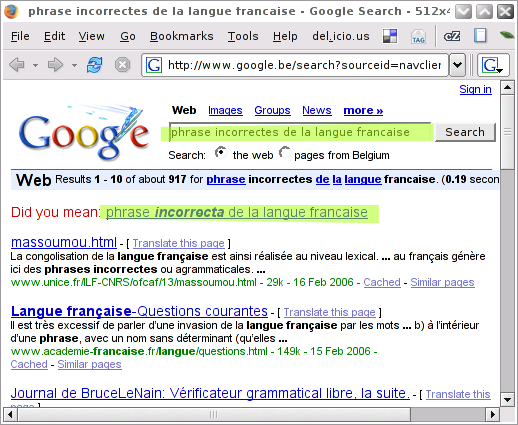Moins dérangeants politiquement pingouins
A question about French modifier ordering.
Juste une petite question aux francophones, déclenchée par une phrase dans Libération d’aujourd’hui :
- Ce n’est pas le documentaire sur les méfaits des hommes d’Enron qui gagne l’Oscar mais les moins dérangeants politiquement pingouins français («La Marche de l’empereur»).
L’ordre des adjectifs et autres adjoints du nom, cela n’a rien de dérangeant pour vous ? Si oui, la section des commentaires serait ravie d’accueillir vos améliorations.
P.S.: C’est quoi la différence entre une congratulation et une félicitation ?
- Après toute les félicitations, congratulations et les habituels remerciements émus, la statuette dorée à la main – à ses parents, mais aussi à son agent, à son manager, et même son avocat…– la communauté hollywoodienne est remontée dans sa longue file de limousines, poursuivie par une flottille d’hélicoptères des télévisions, pour aller fêter cette très belle soirée.
(On ferme les yeux sur l’erreur d’accord — je n’ai pas le droit de râler contre cela, vu que j’en fais des masses. Ceci dit, je n’ai pas de correcteur qui relit ce que j’écris, et le français n’est que ma cinquième langue par l’ordre d’apprentissage, et troisième par la confiance dans mon expression écrite…)
Related posts: Mon pin's est greenz, Je blogue et j'ai les boules, Les poteaux roses, c'est auripilant, Appel aux francophones, Google Belge : problème d'orthographe, Cinderella, vair or verre?, Clouds of words
Technorati (tags): anglicismes, anglicisms, French, grammaire, language teaching, langue, langue française, syntax


